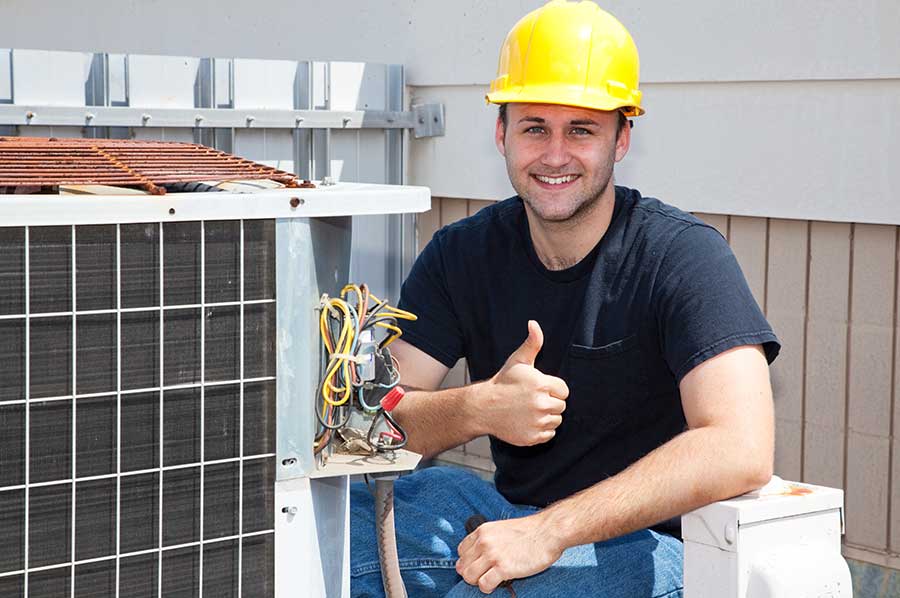
Frequent air conditioning (AC) repairs can be both inconvenient and costly. For Florida homeowners, where reliable cooling is essential, taking preventative measures can help extend the lifespan of your AC system and reduce the frequency of repairs. Here are practical steps to avoid common issues and keep your AC running smoothly.
Regular Maintenance
Routine maintenance is key to preventing unexpected breakdowns:
- Scheduled Inspections: Have your AC system inspected by a professional HVAC technician at least once a year. This helps identify and address potential issues before they become major problems.
- Cleaning and Lubrication: Regularly clean or replace air filters and ensure that the condenser coils and evaporator coils are clean. Lubricate moving parts to reduce wear and tear.
Monitor and Replace Air Filters
Air filters play a crucial role in maintaining system efficiency:
- Regular Replacement: Replace air filters every 1-3 months, depending on usage and the type of filter. Clogged filters restrict airflow, forcing the system to work harder and increasing the risk of damage.
- Filter Quality: Use high-quality filters that are compatible with your system to ensure optimal performance and air quality.
Keep the Outdoor Unit Clear
The outdoor condenser unit requires proper clearance to function effectively:
- Remove Debris: Keep the area around the outdoor unit free from leaves, branches, and other debris. Blocked airflow can lead to overheating and reduce system efficiency.
- Check for Obstructions: Ensure that shrubs, fences, or other objects are not obstructing the unit’s airflow. Maintain a clearance of at least two feet around the condenser.
Ensure Proper Insulation
Proper insulation can prevent system strain and enhance efficiency:
- Check Ductwork: Inspect and seal any leaks in your ductwork. Leaky ducts can cause significant energy loss and force the system to work harder to maintain the desired temperature.
- Insulate Pipes and Ducts: Insulate any exposed pipes and ducts to prevent energy loss and maintain system efficiency.
Manage Thermostat Settings
Thermostat settings can impact the workload on your AC system:
- Avoid Extreme Temperature Changes: Set your thermostat to a reasonable temperature. Frequent changes or setting the temperature too low can put extra strain on the system.
- Use Programmable Thermostats: Consider installing a programmable thermostat to optimize cooling schedules and reduce system use when you’re not at home.
Check for Air Leaks
Air leaks in your home can cause inefficiencies:
- Inspect Seals: Check windows, doors, and other openings for gaps and leaks. Use weatherstripping or caulking to seal any leaks that allow cool air to escape.
- Upgrade Insulation: Ensure that your home is properly insulated to reduce the demand on your AC system.
Address Unusual Noises
Unusual noises can indicate underlying issues:
- Listen for Changes: Pay attention to any strange noises coming from your AC system, such as banging, grinding, or squealing. These noises can signal mechanical problems that need immediate attention.
- Contact a Professional: If you hear unusual sounds, contact a technician to diagnose and address the issue before it leads to more significant damage.
Manage System Load
Proper usage can help prevent overworking your AC system:
- Avoid Overloading: Ensure that your AC system is appropriately sized for your home. An undersized system will struggle to cool the space, leading to increased wear and tear.
- Regular System Updates: Upgrade to a more efficient system if your current one is outdated or frequently in need of repair.
Conclusion
Taking preventative measures can significantly reduce the need for frequent AC repairs and extend the life of your system. By following these practices—such as regular maintenance, monitoring air filters, keeping the outdoor unit clear, and managing thermostat settings—you can ensure that your AC system operates efficiently and reliably. For Florida homeowners, where reliable cooling is crucial, investing time in these preventative steps can lead to long-term savings and comfort.